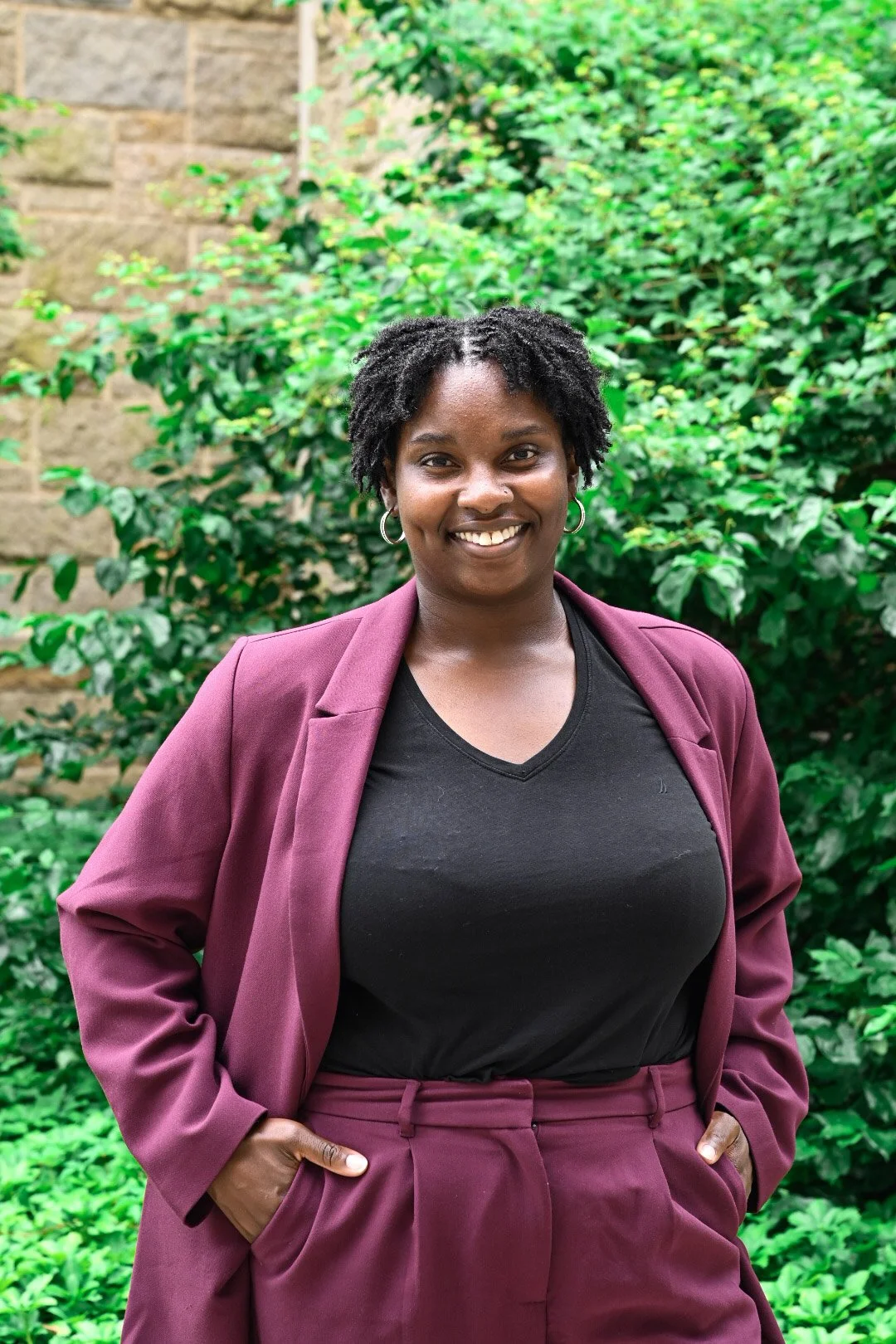Online Perinatal and Postpartum Therapy for Black, Immigrant, and Multicultural Parents in Massachusetts
Becoming a parent is often described as a joyful milestone. The moment a child arrives, many imagine that everything should feel full and radiant. Yet for many Black mothers, immigrant families, queer and trans parents, and femme-identifying caregivers, the postpartum period can feel complex, disorienting, lonely, or heavy. There can be joy, love, and wonder. There can also be grief, exhaustion, anxiety, or a quiet sense of being lost inside a new version of oneself.
Both can be true.
Joy and difficulty can coexist.
Love and overwhelm can sit side by side.
Postpartum mental health is not only about the individual. It is shaped by identity, community, culture, and the conditions in which one is trying to survive. To talk about postpartum healing in a meaningful way, we must speak honestly about colonization, migration, systemic racism, medical violence, gendered expectations, financial pressures, and the realities of parenting without a village.
This is not a story of individual resilience. This is a story of care, context, and community.
| Term | Plain-language definition | How it may look in session | When it helps |
|---|---|---|---|
| Postpartum depression & anxiety | Emotional, physical, and cognitive changes after birth that can include sadness, worry, guilt, or exhaustion. | Naming emotions without judgment; creating rest plans; gentle grounding or somatic awareness exercises. | You feel distant from yourself or overwhelmed by new roles and responsibilities. |
| Perinatal mental health | Emotional wellbeing during pregnancy and the first year after birth. It recognizes the impact of hormones, identity, and social support. | Checking in on sleep, nourishment, and connection; honoring cultural practices around rest and recovery. | When you feel anxious, isolated, or uncertain about the changes that accompany parenthood. |
| Communal postpartum care | Traditional systems of shared care where families, neighbors, and elders support new parents through food, rest, and ritual. | Exploring inherited practices, rewriting rest as healing, connecting with community doulas or support networks. | When isolation feels heavy or when you long for a sense of “village.” |
| Birth & medical trauma | Emotional distress caused by harm, neglect, or fear during pregnancy, delivery, or postpartum care. | Paced storytelling, grounding exercises, and consent-based exposure to difficult memories. | When medical settings or memories of birth feel overwhelming or unsafe. |
| Identity shift | The transformation of self that comes with parenthood, including loss of old rhythms and emergence of new roles. | Using narrative or art-based reflection to name changes and griefs without rushing “recovery.” | When you feel like you no longer recognize who you are or what you need. |
| Culturally responsive therapy | Care that recognizes how race, culture, gender, migration, and class shape postpartum experiences. | Making space for language, faith, or ritual in sessions; naming systemic pressures that shape mental health. | When you want care that understands the intersection of identity, culture, and parenthood. |
Postpartum Healing Has Always Been Communal
Many cultures across the world once had collective care practices for new parents:
Food prepared to restore warmth and nourishment
Aunties and elders staying in the home to support recovery
Neighbors and kin caring for older children
Ceremonies that honored the transition into parenthood
Time intentionally carved out for rest and integration
These practices were not optional luxuries. They were understood as necessary for healing. They communicated that birth changes the body and spirit, and that no one should be expected to navigate that transition alone.
Colonialism disrupted these systems of care.
Families were separated. Land and community networks were fractured.
Capitalism reframed rest as laziness.
Medical systems replaced community midwives and doulas with institutions that often silence or dismiss the experiences of Black and Brown parents.
The result: many new parents today are isolated, overwhelmed, and expected to recover in silence.
What was once held by the village has been placed on the individual.
No one is meant to carry that alone.
Postpartum Experiences Are Cultural, Not Just Personal
Postpartum depression or anxiety may not always look like the descriptions in mainstream parenting guides. Emotional distress may be expressed through:
Feeling the need to appear strong, even when overwhelmed
Difficulty resting, even when the body is tired
Feeling guilt for needing help or wanting space
Feeling disconnected from oneself, the baby, or loved ones
Irritability, worry, or restlessness
Grief that feels hard to explain
Feeling like you must do everything perfectly in order to be a good parent
These responses are shaped by culture, identity, survival strategies, and learned roles.
For example:
Black mothers often carry intergenerational expectations to be strong in the face of hardship.
Immigrant parents may feel pressure to show gratitude for opportunities, even when struggling.
Queer and trans parents may face erasure, questioning, or lack of representation in healthcare and family spaces.
Femme-identifying caregivers may feel internalized pressure to appear nurturing and composed at all times.
None of this is an individual flaw. It is lived history. It is survival. It is love expressed under conditions of pressure.
Identity Shifts and the Loss of a Former Self
Becoming a parent is not only about gaining a new role. It is also about:
Letting go of old rhythms
Relearning your body
Reorganizing priorities
Navigating new boundaries in relationships
Meeting parts of yourself you may not have known before
This can bring up questions like:
Who am I now.
What parts of myself did I lose to survive.
What parts am I allowed to bring forward.
What does care mean when my capacity has changed.
The world often tells new parents to “bounce back” to who they were before.
But there is no returning. There is only becoming.
Therapy should honor this transition, not rush it.
Queer and Trans Parents: Claiming Space in Postpartum Care
Queer and trans parents are often erased in both medical and cultural narratives about pregnancy and postpartum life. Forms, hospital environments, and parenting resources frequently assume that:
The birthing parent is a cis woman
There is one mother and one father in the home
Family roles follow traditional patterns
This can lead to:
Feeling unseen or invalidated
Barriers to accessing affirming postpartum support
Safety concerns in medical environments
Grief around lack of representation
Postpartum therapy must honor gender diversity, chosen family, and self-defined parenting roles. There is no single right way to build or inhabit a family. There is only what is real, chosen, and safe.
What Culturally Grounded Postpartum Therapy Can Offer
Therapy should feel like companionship, not evaluation.
It can include:
Making space for your emotional and physical exhaustion
Exploring identity shifts with gentleness and curiosity
Naming the realities of racial, cultural, and gendered pressures
Processing birth or medical trauma in a paced, contained way
Relearning how to rest without guilt
Developing boundaries that feel protective rather than isolating
Rebuilding support systems in ways that feel sustainable and nourishing
Reconnecting with your body in ways that feel safe and self-honoring
You Deserve Care That Honors Your Whole Self
If you are in the postpartum period, preparing for birth, or navigating new parenthood, you deserve support that acknowledges:
Your culture
Your history
Your identity
Your needs
Your pace
Your transformation
You deserve to feel seen. You deserve to feel supported. You deserve to be held in your becoming.
You May Benefit from Postpartum Support If You Have Been:
Feeling overwhelmed, numb, or unlike yourself
Struggling to rest, even when tired
Crying more easily or feeling emotionally flat
Feeling distant from your baby or partner
Experiencing racing thoughts or constant worry
Feeling pressure to be strong for everyone else
Wondering “When do I get to feel like me again”
You are not alone in any of this.
Work With Blessing Egbuogu, MSW, LCSW
I provide online perinatal and postpartum therapy for Black, immigrant, multicultural, queer, and femme-identifying parents across Massachusetts. My work is grounded in cultural humility, relational care, and honoring the full emotional landscape of new parenthood. I support parents navigating postpartum depression, postpartum anxiety, birth trauma, identity shifts, relationship changes, and the tender process of becoming.
What to expect in our first session
Our first session is gentle and collaborative. There is no pressure to tell your whole story at once. We will move at your pace. During our time together, we may:
Talk about what you have been carrying emotionally and physically
Explore what support looks like for you right now
Notice where overwhelm or grief is held in the body
Clarify what feels urgent and what can wait
Begin shaping a care plan rooted in your culture, values, and capacity
Read This Next
Learn how birth trauma connects to race, migration, language access, and community care in Massachusetts. This guide offers context, stats, and practical steps for healing that centers identity and dignity.
Read: How Birth Trauma Intersects with Race and MigrationFAQs
-
No. You do not need the right words or a diagnosis to begin. We start with what feels present, not a label. If evaluations are helpful for referrals or accommodations, we can discuss them gently. Your story guides our work. Beginning is simply about care, consent, and pacing for you.
-
Yes. If you want partners or trusted support people involved, we can include them in parts of sessions or schedule joint meetings. We focus on communication, roles, and shared care plans. Your consent comes first. We can also keep individual time just for you, whenever that feels safest and supportive.
-
Care is shaped around your culture, language, lineage, and lived realities. We name racism, migration stress, gender expectations, and medical experiences. We honor body knowledge, chosen family, and spiritual practices. Tools may include narrative work, somatic grounding, expressive arts, and gentle skills building. Your pace and consent lead every time.
-
Sessions are held by secure video from your home or any private space. You can attend while feeding, resting, or with your baby nearby. We pace around naps and energy. I provide grounding practices and practical supports between sessions. Privacy, accessibility, and cultural fit guide every step together, we take.
-
Yes. I accept select insurance plans through Dear Therapy. We can confirm coverage and copays before you begin. Sliding scale spots are reserved for those with financial need. If you prefer to self pay, I provide invoices for reimbursement. Cost discussions are transparent, respectful, and care centered from the start.



